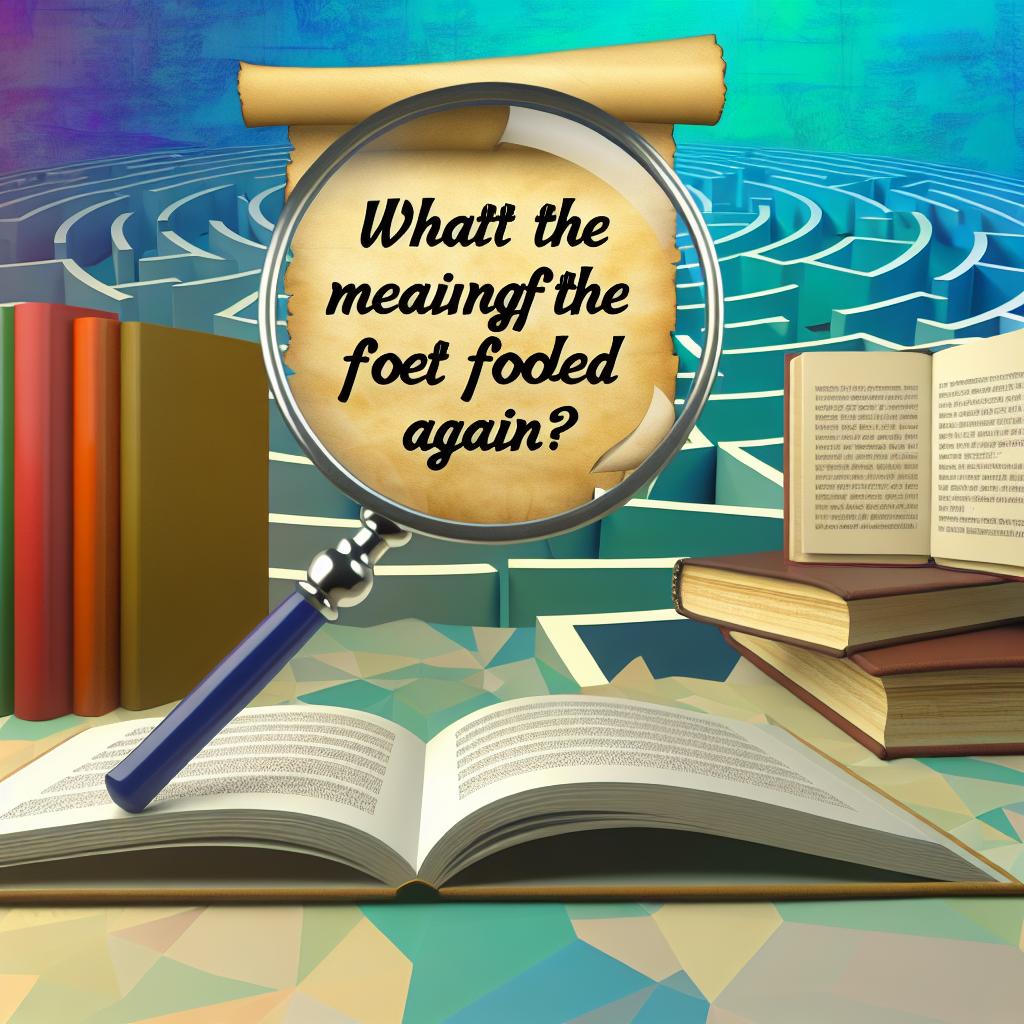The Meaning of “Won’t Get Fooled Again”
“Won’t Get Fooled Again” is a song by the British rock band The Who, released in 1971 as part of their album Who’s Next. Written by the band’s principal songwriter, Pete Townshend, the song has long been interpreted as a statement on political disillusionment and skepticism. The lyrics suggest a cyclical nature of political movements, where initial enthusiasm is met with eventual disappointment.
Lyrical Analysis
The lyrics of “Won’t Get Fooled Again” delve into the themes of power, resistance, and inevitable disillusionment. Townshend’s narrative reveals a perspective inundated with skepticism, as evidenced by the famous line, “Meet the new boss, same as the old boss,” a phrase that succinctly captures the disillusionment felt when new leadership merely replicates the faults of their predecessors. This sentiment underscores the musician’s skepticism regarding the potential of political change that relies solely on the charisma of leaders or revolutionary enthusiasm. Townshend’s words suggest that political movements often start with optimistic aspirations, yet eventually falter, unable to implement real change within the entrenched systems of power they seek to dismantle.
The cyclic nature of these movements is emphasized throughout the song, encapsulating a sense of déjà vu experienced by those who have witnessed the unchanging reality of political leadership across eras. This introspection into political activism—and its often fruitless endeavor to offer substantial change—reflects a broader commentary on societal and governmental structures at large. The repetition embedded in the phrase aforementioned is illustrative of the recurring disappointment in the cyclical rise and fall of political saviors, who ultimately become indistinguishable from the previous regimes they replaced.
By conveying his message through this medium, Townshend succeeds in encapsulating a universal truth that resonates with generations of listeners, effectively tying the individual struggle to a larger, shared consciousness about the nature of authority and governance. This literary device is effective in that it not only criticizes the leaders themselves but also the populace’s tendency to be swept along by the tide of superficial change.
Musical Composition
From a musical standpoint, “Won’t Get Fooled Again” is celebrated for its dynamic and intricate composition. The track is distinguished by its signature use of organ and pioneering synthesizer elements that set it apart from the era’s contemporary rock soundscapes. These synthesizer components, crafted with technical expertise, create a foundation that supports the powerful instrumental interplay throughout the song.
The inclusion of these innovative instrumental sections mirrors the tumultuous and unpredictable nature of societal change and upheaval. In particular, the opening and closing synthesizer segments bookend the piece with a sense of cohesion, encapsulating the song’s thematic return to the beginning—a musical representation of the lyrical cycle.
Roger Daltrey’s iconic scream towards the song’s climax serves as an auditory embodiment of the lingering frustration and dissatisfaction accompanying the aftermath of unfulfilled political promises. This climactic scream is not merely an artistic choice but an emotive release, echoing the collective discontent of those who have invested their hopes in systems that consistently fail to deliver revolutionary change.
The song’s structural elements, from its powerful guitar riffs to its rhythmically engaging drumming by Keith Moon, further enhance its impact, granting the piece an enduring presence in the annals of rock music. Through this soundscape, The Who deliver a poignant experiential understanding of both the chaos and vitality inherent in political and social revolutions.
Political Context of the 1970s
The song’s inception in the early 1970s was amidst periods of considerable global political upheaval. During this era, many Western societies, including the UK and the United States, experienced increasing disenchantment with political leaders and structures that portrayed superficial ideals of democracy and transparency. This growing disillusionment arose from numerous sources, including the controversial Vietnam War, the fervent civil rights movements advocating for equality and justice, and scandals such as Watergate that eroded public trust in governmental integrity.
This environment of skepticism resonated with audiences who were grappling with their governments’ perceived ineffectiveness and duplicity. The song’s critique of political processes aligned with the sentiments of many individuals and activists striving for meaningful change while confronting the resilience of established power structures resistant to such transformations.
In essence, “Won’t Get Fooled Again” articulated the sentiments of an era marked by its profound questioning of institutional and societal norms. It encapsulated a critical moment in history when people were placed at the juncture of idealism and realism, where aspirations for transformative change were consistently challenged by the inertia of systemic rigidity.
Modern Relevance
In contemporary times, the relevancy of “Won’t Get Fooled Again” persists, owing to its universal themes and the ongoing struggle for genuine political reform. Modern politicians, much like their predecessors, often campaign on platforms promising change, yet widespread public skepticism continues due to repeated cycles of unmet expectations.
Around the world, political movements continue to face significant challenges in achieving lasting change without replicating existing hierarchies of power. This enduring struggle reflects the song’s core message, serving as a reminder of the necessity for vigilance and critical awareness within political engagement.
As societies evolve, adapting to new challenges and opportunities, the enduring message of “Won’t Get Fooled Again” becomes a timeless call for mindfulness. Its themes maintain relevance as they urge continuous reflection on the principles of leadership, democracy, and individual agency within the broader societal context.
The song serves as both a cautionary tale and an anthem for those who remain committed to the pursuit of transparency and accountability in governance. It encourages a reflective pause before succumbing to the allure of seemingly revolutionary new leaders, advocating for a deeper understanding of the machinations of power. Through its lyrical and musical prowess, “Won’t Get Fooled Again” remains a powerful embodiment of skepticism, resonating across the decades as a poignant reminder of the complexities within the realm of political change and human governance.
